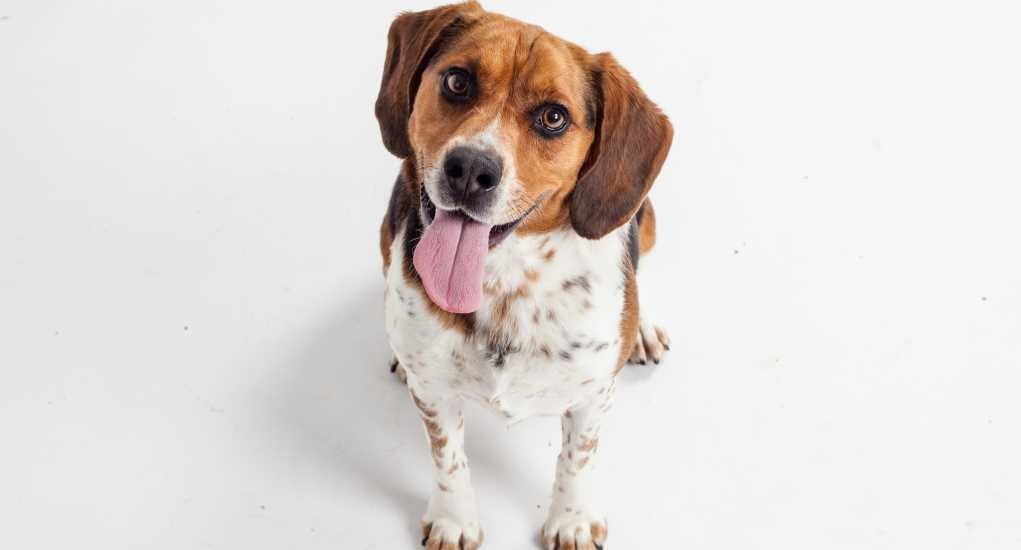So you've decided you want to bring a new puppy into your family, but how do you know where to buy a dog? Before you sign up for your first puppy training 101 home class, the first thing you need to do is find a reputable breeder. The local newspaper is littered with “purebred” dogs for sale and even your local pet store will have puppies up for adoption.
But are these dog breeders reputable?
Or in other words, do you know where those puppies have come from? Even if it is a local family, do you know if the litter was from irresponsible breeding or if there are any congenital health issues? You need to be able to answer these questions for yourself before you decide to go ahead and adopt a puppy of your own.
Where to Buy a Dog: Responsible Adoption
Before you learn how to feed a dog and care for them properly, you need to be sure you're finding an honest, reputable dog breeder that is breeding healthy, happy puppies according to regulations.
So, where do you start?
The American Kennel Club has a list of Breeder Referrals. It is a list of every breed and all the AKC registered breeders who breed them. The list is organized according to the local clubs that the breeder belongs to, so you should be able to find one in your area or within a reasonable distance.
“The closest breeder is 15 hours away!”
Now, I'm from rural Maine, so I know what it's like to have to drive for hours and hours just to get to an urban area. If there are no breeders within a reasonable driving distance – you are NOT out of luck, yet. But where to buy a dog in that case?

Check with your local vets, visit any dog shows in the area, or look into dog societies that may be closer to you. These places can also be great resources to help you figure out where to buy a dog.
If you are looking for a particular breed, then check out some national breed clubs. For example, if you're looking for a Beagle, look to the Beagle Club of America for reputable breeders. These breeders have met certain requirements and ethic codes that prove them to be a triple-R: Reliable, Reputable and Responsible.
Are local breeders definitely a no-go?
Some people will be searching for places where to buy a dog and they're unable to locate a reputable breeder through any of the options mentioned above. If that's you and you think you may have found a local breeder that has the puppy you're looking for, first of all you need to be extremely cautious, but it's certainly a viable option and not a definite no-go.
RELATED: 11 vital tips on how to take care of a dog
What potential dog owners might not know is that many local breeders are not registered with any national associations, but they still breed healthy, purebred dogs that are well cared for. We need to be able to spot those unregistered but responsible dog breeders, and there are a few ways to do that.
If you decide to look for a local breeder in your area anyway…
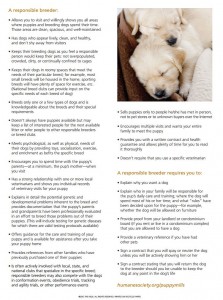
Start by going through AKC's database of canine clubs, these are usually a good place to start where you're looking for where to buy a dog in your local area. PupQuest provides a lot of great resources for finding reputable places. The site is run by licensed vets and dog experts, and the team there discuss all the problems of puppy mills.
HumaneSociety.org have also put together a great checklist on how to find a responsible dog breeder (see on the right).
First and most important sign of a respected breeder is when they allow you to visit the areas where the dog parents and puppies are kept.
If they try to make excuses for why you aren't able to come or try and keep you out of that area when you do come, be suspicious! The area where dogs are kept should be clean and well maintained. A responsible breeder will not sell a puppy to just anyone, and they will certainly understand and oblige your request to see where the dogs are kept.
Dogs in the breeder should not shy away from people. It should be very obvious that they have had a lot of contact with humans, and their pens or roaming area should be very clean. There should be fresh shavings, pee pads, or some other clean area for them to go to the bathroom, and there must be plenty of soft blankets, dog beds, or other material for them to sleep on.
RELATED: Must have dog supplies every dog owner should have
If you notice that the area is dirty or that the puppies are sleeping on a cold hard floor, that means dogs in this place are most likely not being well cared for and the breeder is not very responsible. You should have a good feeling about the area where your puppy is spending his first few months of life, and the parents should be kept in a clean and safe environment as well.
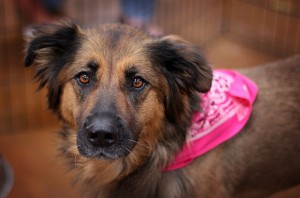
Choosing where to buy a dog is a serious decision that should not be taken lightly. You are absolutely right in taking your sweet time to make a good choice and pick the right place for puppy adoption.
Another important thing to remember is that not all dog owners treat their canines the way that you do, so if you're like me and you spoil your pets rotten, you can't hold a breeder up to those same standards. Just because the puppies aren't laying on goose down comforters with heating pads and don't have the best puppy toys available at all times, this doesn't mean the breeder isn't caring for the puppies properly.
I think I've figured out where to buy a dog. Now what?
Interacting with the dogs in the breeder is another way to tell if that place is responsible.
You should be able to interact with the mother, puppies and the father if he is on the premises. The breeder should encourage you and your family to make multiple visits to interact with your new puppy. If instead they push you to adopt a puppy as soon as possible, then that's another reason to be suspicious of the place.
The more time you spend with your puppy before you bring him home, the better. Your puppy should have the chance to get used to you and your family members. Learning your smell, what you look like, and the sound of your voice will make your new furry family member much more comfortable when you've officially adopted him.
If the breeder is uncomfortable with letting you interact with the dogs, or the staff do not want to show you around, you should look for another breeder. Future dog owners who have the time to go through all the trouble can report any irresponsible breeders to the American Kennel Club by writing them a letter. To reduce the amount of “spam,” they only accept mail through regular post and no emails or calls:
American Kennel Club
Customer Registration Support Dept.
PO Box 900066
Raleigh, NC 27675-9066
Fax – 919-816-4250
You're not done yet, because vet care is also very important
The breeder that you've selected should have a good relationship with a local vet and be able to provide vet records for every adult dog in that facility. Whether the puppies have been to the vet or not, the staff should definitely have records for the mother and father. A responsible breeder will be able to give you all information in regards to any potential genetic or developmental issues.
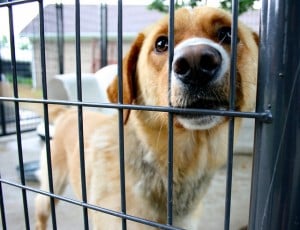
Genetic issues are the most serious problem to consider when looking where to buy a dog and choosing a responsible breeder.
Sadly, not all breeders divulge all the health issues of their breeding dogs, and this leads to genetic and congenital disease among canines being passed form generation to generation. The only way to completely wipe out these kinds of illnesses is to stop the breeding of parents who already have the disease.
RELATED: How to housebreak a puppy effectively
If you are not diligent about looking into the health of your puppy's parents, your new furry family member could end up fighting a very long, arduous health battle that can also result in a shorter lifespan of your dog, and no new pet owner wants that.
Simply put, a good breeder always knows the history of their puppies. They will have information as to their lineage and be able to answer all questions you have (and you better have a lot of them!) The staff will also provide you with health screening information for both of the puppy's parents.
What else should I consider before deciding where to buy a dog?
1. Normally, a reputable breeder will specialize in one breed only. This allows them to be experts on that dog breed. If the breeder offers many different breeds, it could be a sign of a puppy mill. It could also be a sign that your puppy isn't a purebred canine. Be very wary of breeders who work with more than one breed of dogs.
2. Likewise, most breeders will only have one or two litters available at a time. A good breeder will only breed when they know their puppies have an excellent chance of being adopted, and they NEVER OVER-BREED their dogs. If a breeder has multiple litters available at once, that could also be a sign of a puppy mill.
3. If your breeder does not ask you questions, that should be a red flag too. Responsible breeders want to know as much about you and their puppy's new home as possible. They'll also have tips for you about bringing your new family member home, like advice on adopting a dog when you already have a cat, consult you on dog grooming needs and dog nutrition requirements, or anything else related to taking care of your four legged pal.
RELATED: 10 tips for toilet training puppies
It may sound foolish, but adopting a puppy is similar to adopting a human, and a good breeder will want to be sure that their puppy is going to a loving family that will give the pooch the proper care that he needs and deserves.
A good breeder will also want to know what type of home you have and how much space you have for your new family member or if you have any kids at home, especially if you are adopting a larger breed. They may want to know what your plans for vet care are, how many hours a day you are away from home, how are you going to train your Fido, and any additional information they deem necessary.
You cannot simply come in prepared to spray the staff with your own questions alone; you will need to be ready to answer all of theirs as well. Also remember that you might be refused the adoption of a puppy.
Remember to check references

After you've found where to buy a dog, which dog you want and from which breeder, before you agree to make the transaction, you should ask for references about other adopters who have purchased a puppy from that breeder. If the staff refuses and do not want to give out any similar information, do not purchase a puppy.
All responsible breeders will have a list of contacts that they have already checked with, and they will be able to give you all the necessary contact information. It all falls down to caring for their dogs, and if there's every a lack of such signs, that's a good enough reason to be suspicious.
Once you collected all possible references, call all of them prior to signing anything or giving over any deposit money. Prepare a list of questions and concerns for the references as well.
When you” start making rounds of calls to your references, ask them questions about their experience with the breeder.
Here are some sample questions to ask:
- How did they decide where to buy a dog?
- How was the purchasing experience?
- What type of help did the breeder provide?
- Did they supply any vet records or other important information?
- What about the relationship since they've purchased the puppy?
- Has their puppy had any health issues?
- Does the breeder still stay in contact with them?
…and so on. The more questions you can ask, the better. Put a lot of emphasis on breeder's support after puppy adoption. It is important to keep a relationship with the breeder after the sale has been made in case any issues come up in the future, and most responsible breeders will not only agree to that but even insist on keeping in touch.
Wait! Do not sign on the dotted line just yet…
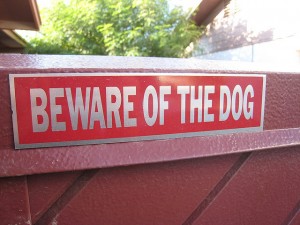
One thing to note is that responsible dog breeders will never request you use a certain veterinarian or dog expert.
However, they may request that prior to finding the vet of your choice you contact them so they can be sure the puppy is getting the proper vaccines and health care. They will have you sign a contract stating that you must return the dog to the breeder if you are unable to take care of the dog. They also typically require that you have your pet spayed or neutered.
RELATED: 10 choices of best cheap dog food products
Even though everything seems to be technologically driven these days, any breeder that uses a website to sell their puppies is not a reputable breeder. Breeders will have websites for informational purposes only. They like to inform those who are looking where to buy a dog and wish to purchase a puppy in that particular breed from a good breeder.
A breeder's website should only have their contact information, including descriptions, address and the phone number, but there must be no transactions done over the site. If they are asking for money, then that should be a huge red flag and a sign that they are not breeding responsibly.
Okay, I've definitely found a good breeder! Is there anything else I should know?
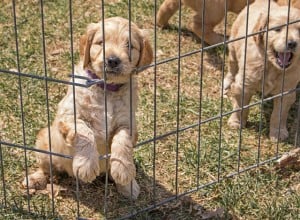
Just a few more things to remember about the process of where to buy a dog and you'll be well on your way to finding your perfect pup. Remember that it's always very important to do your own extensive research prior to contacting a breeder. Have a list of questions and concerns before you call and meet with the breeder's staff.
No responsible (future) dog owner should think of buying a puppy as a “shopping” experience. It's can be hard work to find a reputable place and then pick a puppy for whom you can provide a great home and keep them healthy and happy. This whole process takes time and patience.
You will need to be vigilant and pro-active in making sure you are choosing a breeder that is reputable. Insist on tours of the area, all medical records, and keep your eyes open for anything that might make you uncomfortable. All of this will demonstrate your eagerness to ensure a good home for the puppy, and put reputable breeder's staff at ease when it comes to them deciding whether your home is good for the pooch or not.
If for any reason you get a bad feeling about the breeder, the facility, or the puppies – DO NOT purchase a dog from that place. Although you may feel bad for the puppies or their parents, you should not pay for a dog just to get them out of a bad situation. All you are doing is funding the breeder, and they will surely continue to breed irresponsibly.
Whenever you see any kind of abuse, neglect or other signs of irresponsible breeding, you should leave the facility and immediately contact animal control or your local authorities. You can also report the place to AKC using the address provided above in this article.
Remember, any breeder that is willing to sell you a puppy without having met you or your family is hiding something. No reputable breeder will just sign over a puppy without making sure that a puppy is going to a good home, and you should be sure that any puppy you are getting is coming from a good environment. Requesting their health records and papers is the only way to be certain that you are getting a puppy that has been well taken care of.

RELATED: Does your new puppy needs doggy boots?
Good breeders will be just as concerned about you as you are about them. They will want to be 100% sure their puppy is going to a top quality home. They will talk with you about training and what to expect when you bring your puppy home. They'll probably even talk to you about all kinds of pet supplies, from collars and leashes to the best vacuums for pet hair.
Bringing a new puppy into your family is a big step, and it certainly isn't something that you should take lightly. The commitment you are making after you find where to buy a dog and adopt a new puppy is for a very long time, and you should take it very seriously. A good breeder will prepare you for anything that may come up along the way as you are raising your Fido, and will provide you with the proper support needed after you take them home. They'll be there most of the time you need them, so do not be shy – call.


